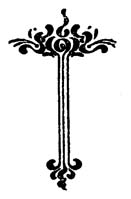

Pioneer Colored Christians
BY
HARRIET PARKS MILLER
“The primitive order with its picturesque
types, has passed with the days that are
dust. The mirthful banjo is mute, and the
laughter, songs, and shouts of the old plantation
quarters no longer float out on the
evening air.”

CLARKSVILLE, TENN.
W. P. TITUS, PRINTER AND BINDER
—1911—
TO THE READER.
In the busy rush of life, the virtues of singleindividuals too often escape notice, or make butslight impression on the minds of their contemporaries.It is in after years, when the actorsare dead and gone, that their virtues shine forth,and speak from the silence, through the penof some one who catches them before it is toolate.
No history is richer, or more beautiful, thanthat written of lives led by wisdom, and goodness.
The writing of this little book is inspired by adesire to perpetuate, as examples, the lives ofsuch people. While the trend of my thoughtswill center around one special family,—theCarrs—I shall not omit honorable mention ofother colored citizens, who walked upright amongtheir fellow men.
I shall also make mention of leading whitepeople who befriended the colored race in itsearly struggles for religious liberty.
I write with the hope, that what I say, willhave a tendency to deepen the sympathy, andkind feeling which should ever exist between thetwo races living together in the South.
The Author.
Port Royal, Tenn., July, 1911.
CONTENTS
Interview with Aunt Kitty Carr, September,1901, in which she tells of her birth in Virginia,1815.
At six years of age, she was given by her motherto Mrs. Edmond Winston, who one year later,brought her to Tennessee. Marriage in early lifeto Rev. Horace Carr.
She was free born; effort to deprive her of herbirth right.
By the assistance of kind white friends, she isenabled to legally establish her freedom.
Reading of Prayer Book.
Rev. Horace Carr.
His birth in Spring Creek neighborhood, in 1812.
Belonged to Aquilla Johnson, and was sold fora division of the estate. Bought by Mr. JamesCarr, of Port Royal, Montgomery county, Tenn.
After master’s death, he hires himself from hismistress, and locates on a retired spot near “Horse[4]Shoe Bend” of Red River, by permission of Mr.William Weatherford, its owner. Mode of makinga living. Joins Red River Church, and is ordainedto preach. Invitation by Mr. E. L. Fort, topreach on his premises.
Worship of the two races together, in antebellumtimes.
Department in white chur